
Angl_yaz_8kl_Spotlight_Anglysky_v_fokuse
.pdf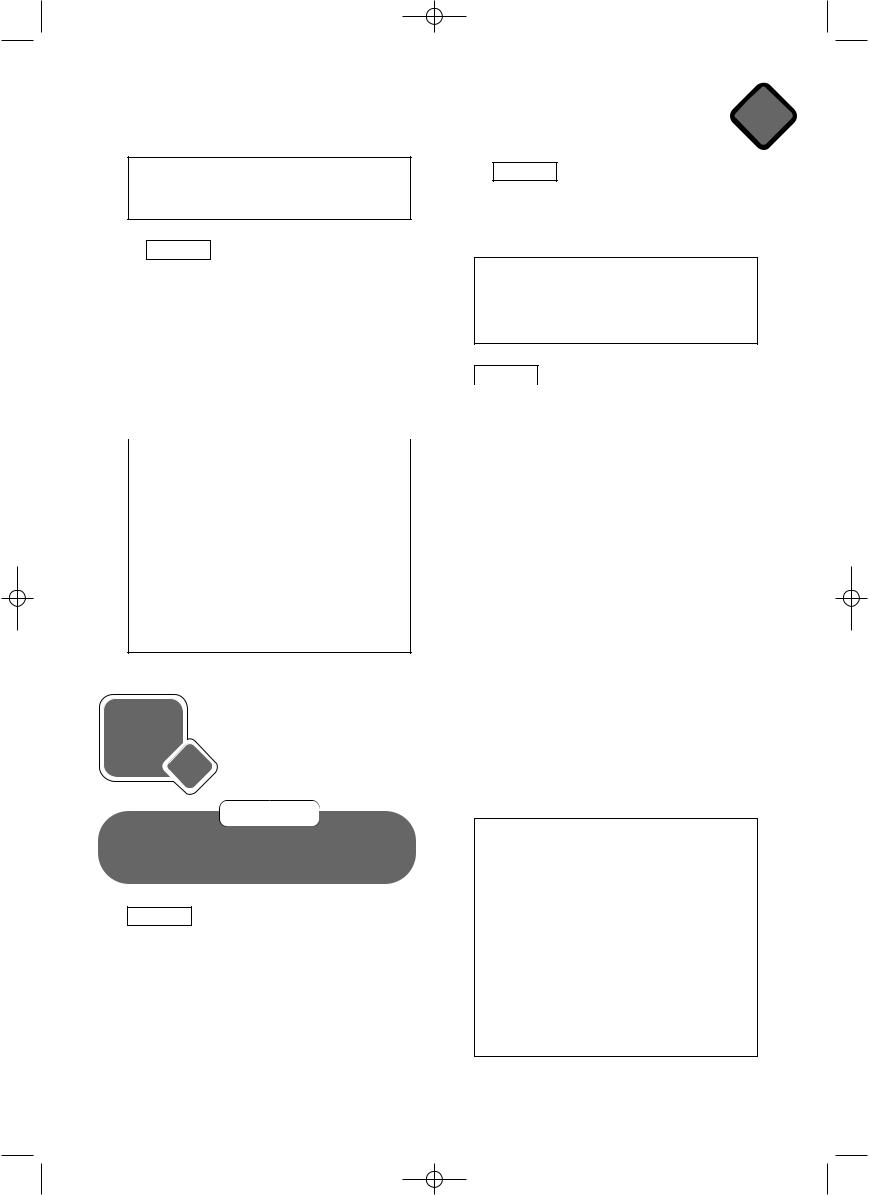
Spotlight 8 Mod 1 Ts 09-09-09 17:04 Page 21
Vocabulary & Speaking 1d
B: Yes, but he can be a bit impatient at times.
A:Well, that’s better than my teacher who is very bossy and a little annoying sometimes.
9 a Focus Understanding idioms
bFocus Practising using idioms
ñHave Ss complete task individually, the idioms from Ex. 9a.
ñInvite Ss to read out answers and check.
ñ Refer Ss to the Study Skills box on page 17, |
Answer Key |
|
|
||
1 |
hold, tongue |
4 |
pain, neck |
||
Check for understanding (words in an idiom |
|||||
take on different meanings than their usual |
2 |
speak, mind |
5 |
gets, nerves |
|
meanings). |
3 |
driving, crazy |
6 |
break the ice |
|
ñHave Ss form groups of 3-4 and complete task, giving reasons for their answers. Ask Ss
|
to find similar idioms in own L1. |
10 Focus Role playing using idioms |
|||||
ñ Invite groups to say their answers in front of |
|
|
|
||||
ñ In pairs, have Ss act out exchanges like in the |
|||||||
|
the class and discuss. |
|
example from the rubric. |
||||
|
|
|
ñ Invite several pairs to act out their exchanges |
||||
Answer Key |
|
in front of class. |
|||||
1 |
B ― say honestly what you think about a |
|
|
|
|
|
|
|
situation, even if it might upset/offend |
|
Suggested Answer Key |
|
|||
|
people |
|
A: |
Karen is so confident; she really speaks |
|
||
2 |
A ― to be annoying/irritating |
|
|
her mind. |
|
||
3 |
F ― to annoy/irritate |
|
B: |
Yes, but sometimes she should hold her |
|
||
4 |
C ― to make sb extremely annoyed |
|
|
tongue so as not to hurt other’s feelings. |
|
||
5 |
E ― not say things that upset people |
|
|
|
|
|
|
|
|
|
|
|
|||
6D ― to make people who have not met before feel more relaxed with each other
(Answers in Ss’ L1)
1 e Writing Skills
Objectives
Vocabulary: messages from greeting cards Writing: in an informal style; a greeting card
1Focus Introducing the topic
ñRefer Ss to the different greeting cards and have them describe the pictures on them.
ñAsk Ss when we send greeting cards
ñRead box with Ss and check answers.
Suggested Answer Key
In card A, I see someone in bed sick. In card B I see two rings joined together. Card C shows someone with a birthday cake and presents. Card D has a picture of a ring that is inside a heart and surrounded by flowers. Card E shows a stork carrying a little baby in its beak. Card F has two penguins playing in the snow. Card G shows a girl wearing a graduation gown dancing for joy with mortar boards all around her. Card H shows pretty flowers.
We usually send such messages to congratulate people or to wish people well.
21
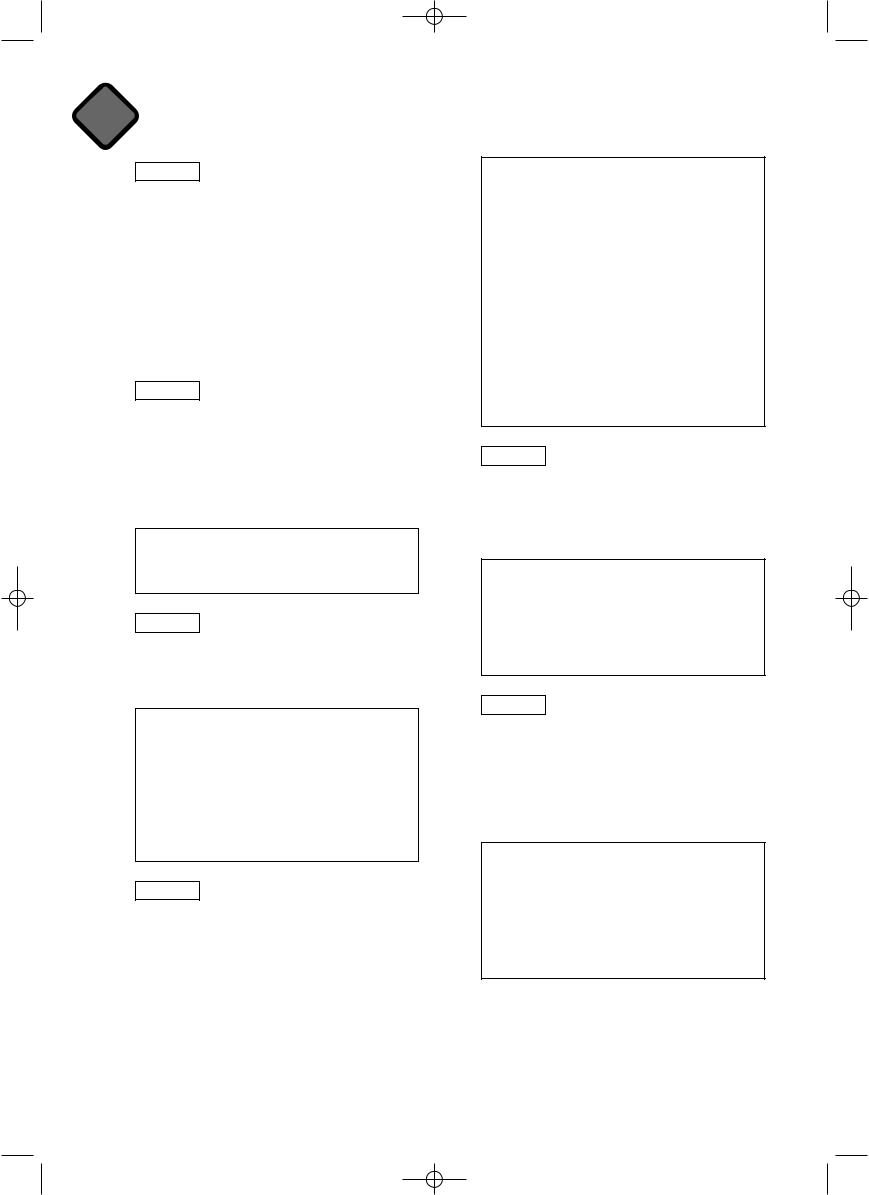
Spotlight 8 Mod 1 Ts 09-09-09 17:04 Page 22
1e Writing Skills
Understanding new vocabulary
ñRead with Ss the list of situations and check for new vocabulary. Allow time for Ss to write down new vocabulary in notebooks.
ñHave Ss complete matching task individually.
ñCheck answers in class.
Answer Key |
|
|
|
|
|
||
1 |
e |
3 |
b |
5 |
f |
7 |
a |
2 |
h |
4 |
c |
6 |
d |
8 |
g |
|
|
|
|
|
|
|
|
3Focus Practising new vocabulary
ñRead the message in the rubric with the class. Ask Ss to look for key words that suggest which card the message belongs in and write them on the board.
ñInvite a S to match the message to a card. Discuss reason for writing the card.
Answer Key
Card A. Janet wrote the card to wish Helen a speedy recovery.
4Focus Presenting informal style of writing
ñRead Theory Box with Ss. Check for understanding.
ñHave Ss find examples from the message in Ex. 3 and write them on the board.
Answer Key
short opening and closing remarks: Dear Helen, Hugs and kisses
abbreviations: What’s, wasn’t, I’m, you’ll colloquial phrasal verbs, idioms and everyday language: you’ll be back on your feet in no time the imperative: ―
informal linkers: and
5Focus Understanding informal style of
writing
ñRead message from cards with class. Check for understanding.
ñHave Ss complete task individually and then compare answers with a partner.
Answer Key
AJane has written to congratulate Tony on his new job.
Examples of informal style: Hi Tony, Well done, All the best
BGreg has written to Neil to suggest that they get together.
Examples of informal style: Hi Neil, How’s it going? I’m, you’re, Let’s get together, Give me a ring , Catch you later
CSarah has written to Amanda to apologise for not being able to go to her party. Examples of informal style: Hey Amanda, can’t, stuck, I’ll, make it up to you, Kisses
6Focus Practising new vocabulary
ñWrite questions from rubric on the board.
ñHave Ss complete task individually.
ñHave Ss find sentences from exercise that answer questions written on the board. Check answers.
Answer Key
1 thoughts (has a family problem)
2 recovery (had an accident)
3 proud (got his/her degree)
4 luck (is moving to another place)
5 day (celebrating his/her birthday)
7Focus Practising writing in the informal
style
ñRead rubric with class.
ñIn pairs, have Ss rewrite rubric message in the informal style.
ñInvite several pairs to read their message to the class and discuss.
Answer Key
Hi Matthew!
Happy birthday! Cheers for inviting me to your party next week! I’ll definitely come!
Can’t wait to see you all! Love,
Paul
+
22
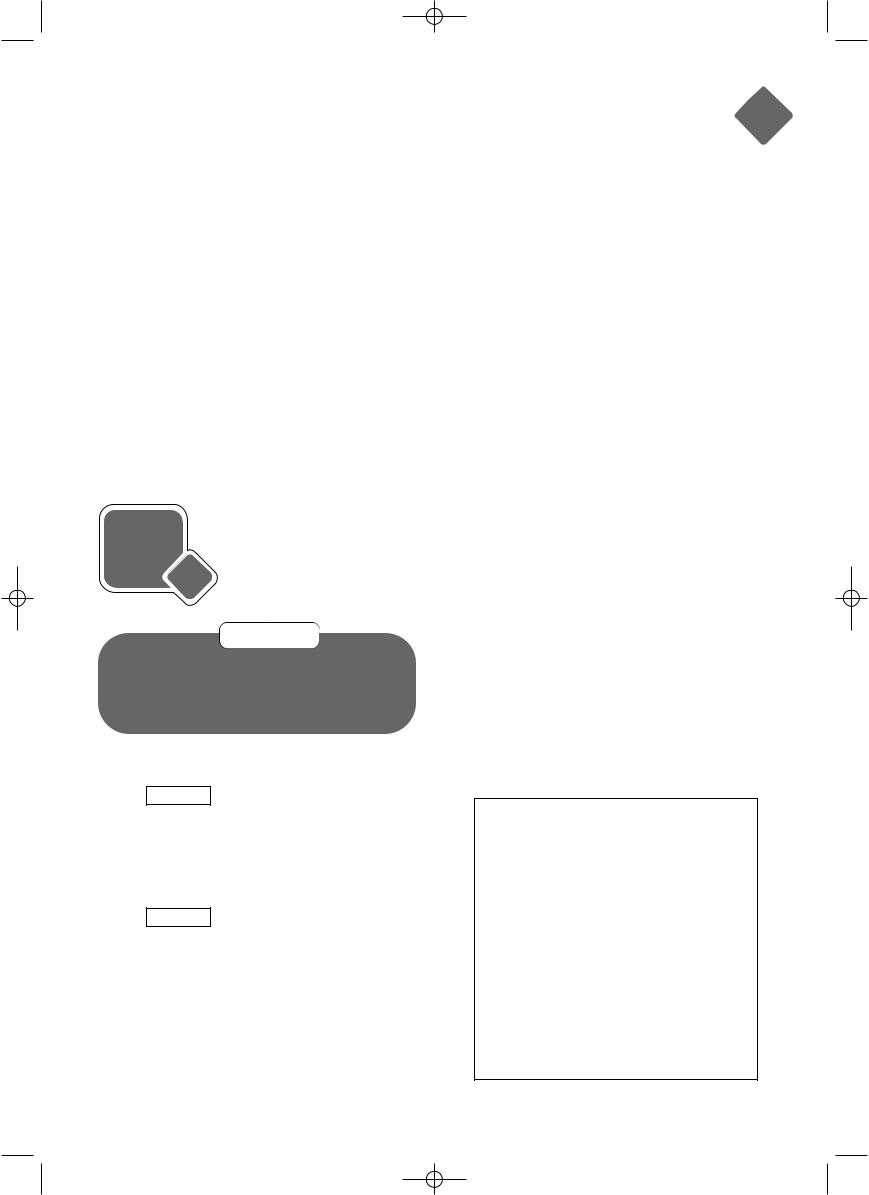
Spotlight 8 Mod 1 Ts 09-09-09 17:04 Page 23
|
|
|
|
|
|
|
Writing Skills |
|
1e |
|
Writing |
|
|
|
|
|
|
|
|||
|
|
|
|
|
|
|
||||
9 |
|
Smile |
|
|
|
|
||||
8 |
|
Writing a greeting card |
|
|
|
|
|
|||
Focus |
|
|
|
|
|
|
|
|||
|
ñ Ss read the joke. Elicit from Ss possible answers |
|||||||||
ñ Read rubric and check for understanding. |
|
|||||||||
|
|
to the question in the joke. |
|
|
|
|||||
ñ Allow Ss time to write cards. |
|
ñ Write suggested answers on board and have Ss |
||||||||
ñ Invite Ss to read their cards to the class. Ask for |
|
|
choose the best one and explain why it is funny. |
|||||||
|
feedback from class. |
|
|
|
|
|
|
|
||
ñ Alternatively, task can be assigned for HW. |
|
|
|
|
|
|
|
|||
|
|
Answer Key |
|
|
|
|||||
|
|
|
|
|
|
|
|
|
||
|
|
|
|
|
|
Another year (meaning: she got another |
year |
|
||
|
Suggested Answer Key |
|
|
|
|
|||||
|
|
|
|
older which is something she really doesn’t |
|
|||||
|
Dear Kira, |
|
|
|
|
|||||
|
|
|
|
want). |
|
|
|
|||
|
Congratulations on winning the summer school |
|
|
|
|
|
|
|
|
|
|
scholarship! I’m sure you’ll enjoy studying and |
|
|
|
|
|
|
|
|
|
|
|
|
|
|
|
|
||||
|
living in London. Best of luck with everything! |
|
|
|
|
|
|
|
|
|
|
Will be thinking of you, |
|
|
|
|
|
|
|
|
|
|
Love, |
|
|
|
|
|
|
|
|
|
|
Sarah |
|
|
|
|
|
|
|
|
|
|
|
|
|
|
|
|
|
|
|
|
1 f English in Use
Objectives
Vocabulary: phrasal verbs (get)
Grammar: Forming adjectives; dependent prepositions; verb tenses
Speaking: role playing; a telephone conversation
Word Formation
1a Focus Presenting adjective formations
ñRefer Ss to Theory Box and check for understanding.
ñHave Ss find similar formations in own L1.
(Ss’ own answers)
bFocus Forming adjectives
ñRefer Ss to the example.
ñHave Ss complete task individually and check their answers in the dictionary.
ñIn pairs, Ss answer the questions.
ñInvite a few pairs to give their answers in front of class.
Answer Key |
|
|
|
2 |
successful |
8 |
educated |
3 |
traditional |
9 |
rainy |
4 |
romantic |
10 |
boring |
5 |
stylish |
11 |
enjoyable |
6 |
careless |
12 |
horrible |
7 |
generous |
|
|
|
|
|
|
Suggested Answer Key
2 I think Vanessa Mae is the most successful musician.
3 I think beef stroganoff is the best traditional dish.
4I think The Bold and the Beautiful is the worst romantic TV series.
5The most stylish outfit, in my opinion, is a silk tunic with black leggings.
6 He is the most careless driver I know.
7My most generous friend is called Karen. She is always giving me presents!
8 My neighbour, Dr Brown, is the most educated person I know. She has spent 8 years at university!
23
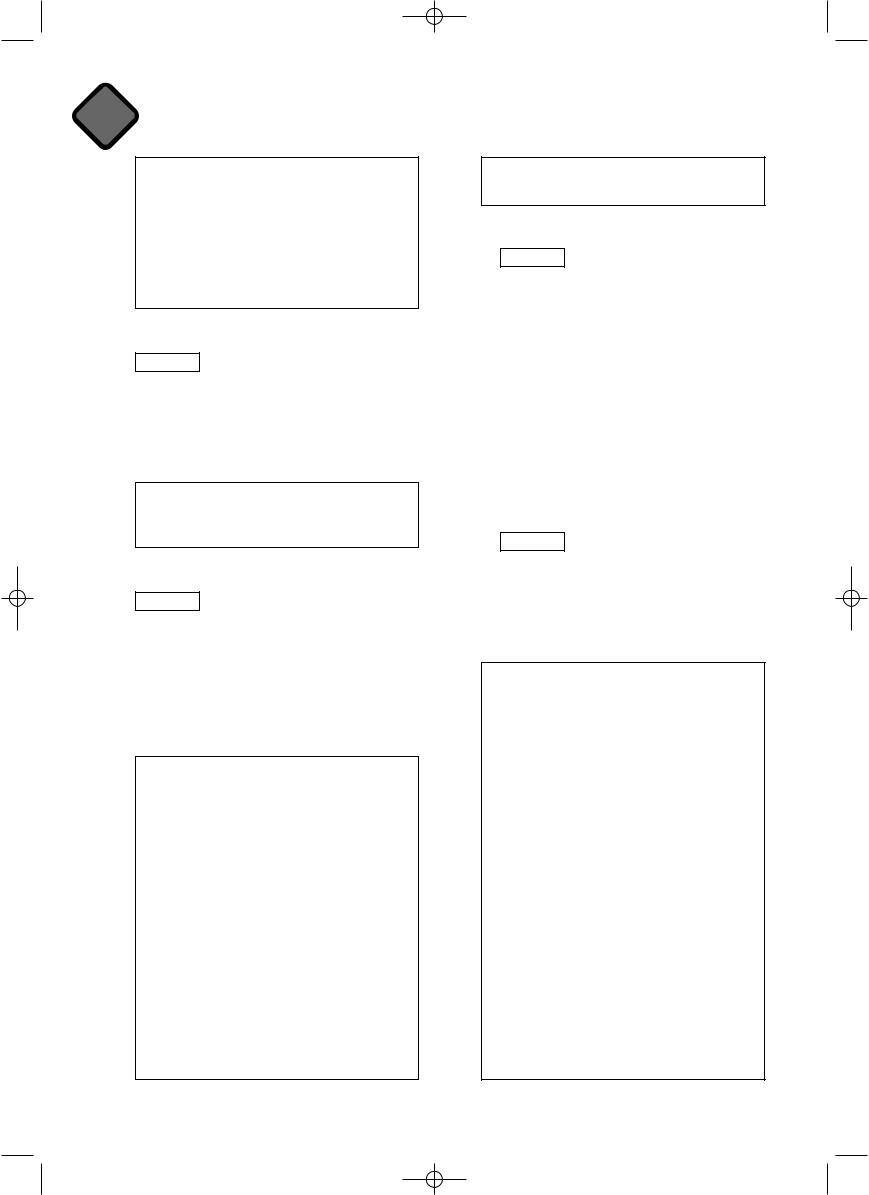
Spotlight 8 Mod 1 Ts 09-09-09 17:04 Page 24
1f English in Use
9I think it is best to stay at home and watch DVDs on a rainy day.
10The most boring film I have ever seen is The Da Vinci Code.
11The least enjoyable holiday I ever had was when I went camping in Wales.
12The most horrible food I’ve ever tasted was a Chinese takeaway from Far East.
Phrasal Verbs: get
2Focus Practising phrasal verbs (get)
ñWrite phrasal verbs with get on the board. Elicit possible meaning from Ss.
ñHave Ss complete task individually.
ñInvite Ss to read out their answer and check for understanding of verb meaning.
Answer Key |
|
|
|
|
1 |
across |
3 |
over with |
5 over |
2 |
along |
4 |
down |
|
Dependent Preposition
3Focus Practising dependent prepositions
ñHave Ss complete task individually.
ñInvite Ss to read out answers in class. Explain that the bold words and filled in prepositions create phrases meaning something.
ñWrite these phrases on the board and invite Ss to say sentences with them about people they know. Refer Ss to the example in the rubric.
Answer Key |
|
|
|
|
|
1 |
with |
4 |
of |
7 |
of |
2 |
about |
5 |
on |
8 |
to |
3 |
of |
6 |
at |
9 |
with |
Karen is nervous about acting in the school play.
Barbera was jealous of my new coat and bought the same one.
She is an excellent teacher and the students are very fond of her.
She is not keen on going sailing, as she gets seasick easily.
Marilyn has become quite good at tennis after only a few lessons.
Julia’s parents are proud of her good grades. Kelly is very close to her cousin and tells her everything.
How can he be a teacher? He’s not patient enough with children!
Grammar Revision
4a Focus Consolidating verb tenses
ñRefer Ss to the email message and explain that they should pay attention to key words which indicate a period of time or frequency as they determine the tense of the verb.
ñHave Ss complete task individually.
ñInvite Ss to read out answers in class and check.
Answer Key |
|
|
|
1 |
sent |
5 |
have never been |
2 |
was feeling |
6 |
have been studying |
3 |
cheered |
|
|
4 |
have already been |
|
|
|
|
|
|
bFocus Role playing; a telephone
conversation
ñIn pairs Ss act out a telephone conversation following the e-mail message in Ex. 4a.
ñInvite pairs to act out conversations in front of class. Ask class for feedback.
Suggested Answer Key
Claire: Hi Jane. It’s Claire, how are you? Jane: Oh hi Claire. Fine and how are you feeling? Claire: I’m fine. I’m calling to thank you so much for the lovely card and flowers you sent last week. They really cheered me up as I was feeling very low.
Jane: You’re very welcome, it’s the least that I could do. How are you feeling now?
Claire: Much better, I have been back at school for a couple of days.
Jane: How is school going?
Claire: I have never been so busy, as I have a lot of schoolwork. For the past two nights, I have been studying until midnight to try and catch up.
Jane: Oh dear. You should try and get some rest. Claire: I have almost finished the work I missed and then I am going to take a break.
Jane: Good. Call me when you finish and we can get together.
Claire: OK. Take care. Jane: You too.
24
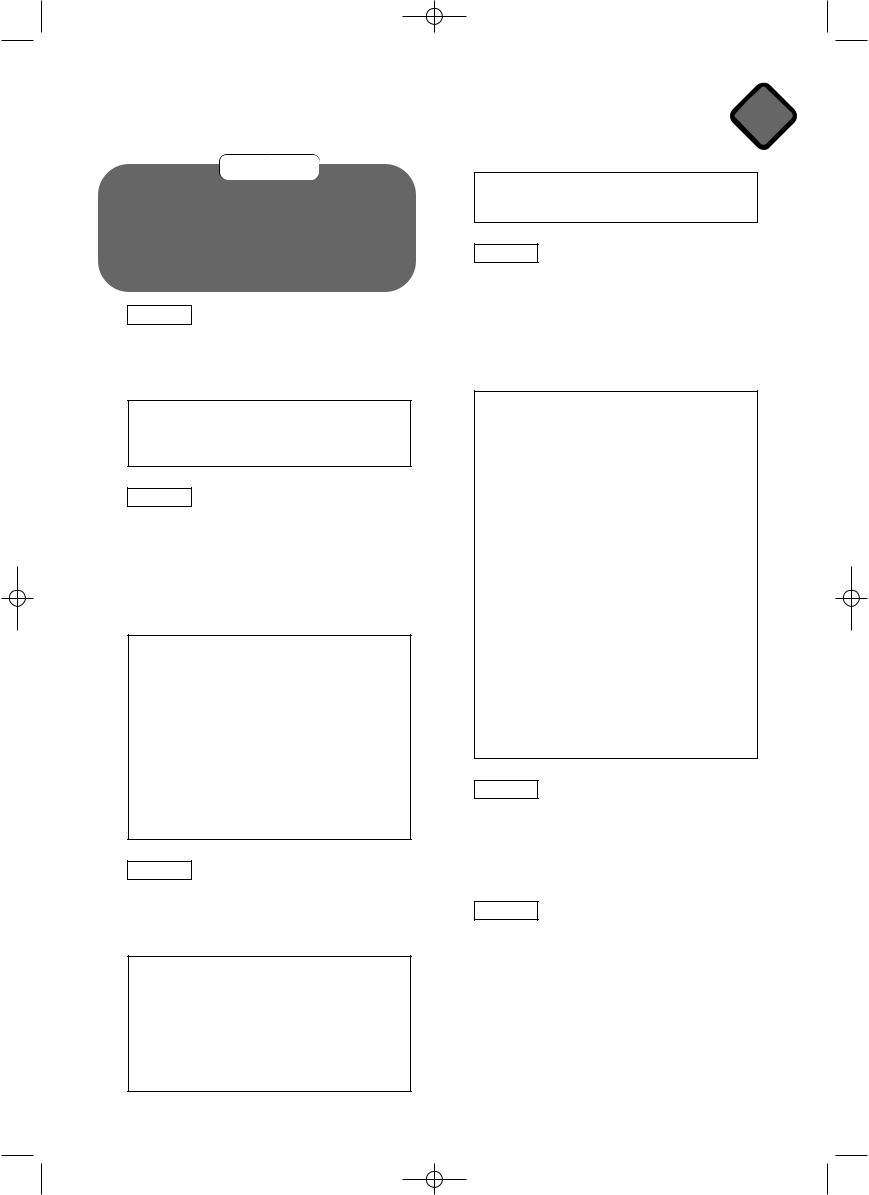
Spotlight 8 Mod 1 Ts 09-09-09 17:04 Page 25
Objectives
Vocabulary: social etiquette
Reading: reading for specific information Speaking: discussing social etiquette Listening: listening for confirmation Writing: an article on social etiquette
1Focus Introducing the topic
ñWrite the word “social etiquette” on the board.
ñElicit from Ss what they think the word means and discuss.
Answer Key
Social etiquette = customs & rules for polite behaviour
2Focus Predicting the context of the text/
reading and listening for confirmation
ñRefer Ss to the title of the text and the heading under the pictures. Discuss what people in these situations do.
ñStudents check answers by reading and listening to the text.
Suggested Answer Key
I think British people shake hands when they meet people for the first time. When they greet people they know well, I think they sometimes hug each other or kiss; sometimes they just wave to each other or smile.
I think the British like to talk about the weather and also about gardening and pets.
When British people go visiting people, I think they like to bring something for the host, maybe a little present or some flowers.
3Focus Reading for specific information
ñRefer Ss to the question in the rubric.
ñSs reread text and answer the questions.
ñCheck answers in class.
Answer Key
1 They shake hands.
2 They kiss them on the cheek or give them a hug.
3You can talk about family, friends, films, television, sport, studies, food, hobbies and weather.
Culture Corner |
1 |
4You should be on time and bring a gift for your hosts.
4Focus Understanding new vocabulary
ñRefer Ss to the bold words in the text. meaning.
ñHave Ss find meaning in own L1. Allow
Ss to write down new vocabulary in notebooks.
ñHave Ss complete sentences individually and check.
Answer Key
respect ― have a good opinion of their character or ideas
kiss (sb) on the cheek ― kiss sb on the side of their face
give them a hug ― put your arms around them and hold them tightly
affectionate ― showing love or fondness for sb
offended ― upset because of sth sb has or has not done
small talk ― conversation about unimportant things between people who do not know each other well
marital status ― the state of being married or not
acceptable ― good enough, appropriate hosts ― people who have guests
1 |
respect |
3 |
acceptable |
5 cheek |
2 |
hug |
4 |
hosts |
|
5Focus Discussing the topic of the text
ñRefer Ss to the questions in Ex. 3 and elicit answers from class about their country.
ñDiscuss social etiquette in Ss’ country
(Ss’ own answers)
6Focus Writing an article on social etiquette
ñExplain task and refer Ss to their answers in Ex. 5 to help them write their article.
ñAllow Ss time to write articles.
ñInvite Ss to read their articles to class. Ask for feedback from class.
ñAlternatively, assign task as HW
25

Spotlight 8 Mod 1 Ts 09-09-09 17:04 Page 26
1 |
Culture Corner |
Suggested Answer Key
Social Etiquette in Russia
Russians are very warm and hospitable people. They enjoy meeting new people and like to invite people to their homes for food and conversation. But there are a few things you should remember when you go to Russia.
When you meet a Russian person for the first time, you should shake hands with him/her. Be careful ― some people have a very strong grip! Try to smile as you introduce yourself. When you greet people you know well, you should kiss them on both cheeks to say hello and goodbye.
When talking to people in Russia, some topics are ‘safer’ than others. Suitable topics for small talk are TV programmes, pets, family or you can complain about public transport or the weather.
But you should avoid talking about politics or Russian history, or you might miss the last bus/tram home!
When you visit Russian people in their homes, it is fine to arrive five or ten minutes late ― do not arrive early as your host might not be ready to receive you! It is good manners to take some flowers with you, or a little gift to show your appreciation. Do not be surprised when your host asks you to take off your shoes at the door and hands you a pair of slippers to wear ― make yourself comfortable and feel at home! And be prepared to eat a lot of food! The guest always gets more than anyone else!
|
1 |
|
|
Across the Curriculum – PSHE |
|
||
|
|
|
|
|
|
|
|
|
|
|
|
|
Objectives |
|
|
|
|
|
|
|
Suggested Answer Key |
||
|
|
|
|
|
|
|
|
|
|
Vocabulary: conflicts and feelings; opposites |
|
A: How do you deal with arguments? |
|||
|
|
Reading: reading to identify missing lexis |
|
B: I try not to argue with people. I hate |
|||
|
|
Speaking: giving advice on how to resolve |
|
arguments. If people are arguing, I try to |
|||
|
|
conflicts; discussing a text |
|
keep out of it. What about you? |
|||
|
|
Writing: a poem about arguing |
|
A: I don’t like them either, but sometimes I |
|||
|
|
|
|
|
|
|
argue for ages with people. I try to get |
|
|
|
|
|
|
|
them to see my point of view. I try not to |
|
|
|
|
|
shout or get emotional. |
||
|
1 |
|
Focus |
Predicting text content |
|||
|
|
|
|
|
|
|
B: That’s the best thing to do. etc |
|
|
|
|
|
|
|
|
ñRefer Ss to the title of the poem.
ñHave Ss read and listen to the poem and ask
|
how the title is related to the text. |
|
3 |
Focus |
Reading to identify missing text/ |
|
|
|
|
|
|
understanding |
new vocabulary |
|
Answer Key |
|
ñ Have Ss read the text and fill in the gaps |
|||
|
The title of the poem is ‘Argument’ which is |
|||||
|
|
individually. Ss compare answers with a |
||||
|
exactly what the poem is about. The words in |
|
||||
|
|
partner. |
||||
|
the poem are made up of two |
people |
|
|||
|
ñ Refer Ss to the bold words in the text. Discuss |
|||||
|
contradicting each other. |
|
||||
|
|
|
meaning. |
|||
|
|
|
|
|
||
|
|
|
|
ñ Have Ss find meaning in own L1. Allow time for |
||
2 |
|
Discussing a poem |
|
|
Ss to write down new vocabulary in notebook. |
|
Focus |
|
|
||||
ñElicit ideas from Ss on how to handle and deal with arguments.
ñIn pairs, have Ss discuss dealing with an argument.
ñMonitor activity and assist as necessary.
26

Spotlight 8 Mod 1 Ts 09-09-09 17:04 Page 27
|
|
|
|
|
|
|
Across the Curriculum – PSHE |
1 |
|||||||||
|
|
|
|
|
|
|
|
|
|
|
|
||||||
|
|
|
|
|
|
|
|
|
|
|
|||||||
|
|
Answer Key |
|
|
6 |
|
Focus |
Writing a poem about arguing/ |
|
|
|||||||
|
|
1 |
how |
3 |
them |
5 other |
|
|
understanding |
opposites |
|
|
|
|
|||
|
|
2 |
at |
4 |
since/because/as |
|
|
ñ Explain task and refer Ss to words in the list |
|||||||||
|
|
|
|
|
|
|
|
|
|||||||||
|
|
show up ― appear |
|
|
ñ In pairs Ss find opposites with dictionary and |
||||||||||||
|
|
frustrated ― feeling upset or angry because |
|
|
write their poems. |
|
|
|
|
|
|||||||
|
|
you are unable to do anything about a problem |
|
ñ Invite pairs to read poems to class. Call for |
|||||||||||||
|
|
annoyed ― fairly angry about sth |
|
|
feedback from class. |
|
|
|
|
||||||||
|
|
disappointed ― feeling sad because sth has not |
|
|
|
|
|
|
|
|
|
|
|||||
|
|
happened/because sth is not as good as you hoped |
|
|
|
|
|
|
|
|
|
|
|||||
|
|
|
|
Suggested Answer Key |
|
|
|
|
|||||||||
|
|
resolving ― solving |
|
|
|
|
|
|
|
||||||||
|
|
|
|
|
The never-ending argument |
|
|
|
|||||||||
|
|
process ― series of actions carried out in |
|
|
|
|
|
||||||||||
|
|
|
|
|
|
|
|
|
|
|
|
||||||
|
|
order to achieve a particular result |
|
|
Happy! |
Sad! |
|
Will! |
Won’t! |
|
|||||||
|
|
blame ― say sb is responsible for sth, even if |
|
|
|
|
|||||||||||
|
|
|
|
Bad! |
Good! |
|
Hot! |
Cold! |
|
|
|||||||
|
|
they may not be |
|
|
|
|
|
|
|||||||||
|
|
|
|
|
Come! |
Go! |
|
Young! |
Old! |
|
|
||||||
|
|
accuse ― tell sb you think they did sth |
|
|
|
|
|
||||||||||
|
|
|
|
Fast! |
Slow! |
|
Day! |
Night! |
|
||||||||
|
|
boss me around ― bully me |
|
|
|
|
|
||||||||||
|
|
|
|
|
Do! |
Don’t! |
|
Dark |
Light! |
|
|
||||||
|
|
flexible ― adaptable |
|
|
|
|
|
|
|||||||||
|
|
|
|
|
|
|
|
|
|
|
|
|
|||||
|
|
|
|
|
|
|
|
|
|
|
Discussing the text (dealing with |
||||||
|
|
|
|
|
|
|
|
|
|
|
|||||||
|
|
|
|
|
|
|
7 |
|
Focus |
||||||||
4 |
|
Focus |
Expressing feelings |
|
|||||||||||||
|
|
|
conflict) |
|
|
|
|
|
|
|
|||||||
|
ñ Refer Ss to the statements and check for any |
ñ Have Ss read text again. |
|
|
|
|
|||||||||||
|
|
new vocabulary and understanding. |
|
|
|
|
|||||||||||
|
|
ñ Ss form groups of 3-4 and discuss statements in |
|||||||||||||||
|
ñ Allow time for Ss to write down new vocabulary |
||||||||||||||||
|
|
text and whether they agree or not with them. |
|||||||||||||||
|
|
in notebook. |
|
|
|
||||||||||||
|
|
|
|
ñ Monitor activity and assist as necessary. |
|
|
|||||||||||
|
ñ In pairs, Ss change the statements. |
|
|
||||||||||||||
|
|
|
|
|
|
|
|
|
|
||||||||
|
ñ Invite a few pairs to tell class their new statements |
|
|
|
|
|
|
|
|
|
|||||||
|
|
Suggested Answer Key |
|
|
|
|
|||||||||||
|
|
and check. |
|
|
|
|
|
|
|
|
|||||||
|
|
|
|
|
|
A: I agree with the text about how easy it is |
|||||||||||
|
|
|
|
|
|
|
|
|
|
||||||||
|
|
|
|
|
|
|
|
|
|
for a conflict to become very bad with |
|||||||
|
|
Suggested Answer Key |
|
|
|
||||||||||||
|
|
|
|
|
people screaming and even hitting. It has |
||||||||||||
|
|
2 I am disappointed that you are late again. |
|
|
|||||||||||||
|
|
|
|
happened to me before. |
|
|
|
||||||||||
|
|
|
I don’t feel I can rely on you. |
|
|
|
|
|
|||||||||
|
|
|
|
|
B: I think it’s really important not to blame or |
||||||||||||
|
|
3 |
I don’t |
feel I can believe |
what you say |
|
|
||||||||||
|
|
|
|
accuse people when discussing a problem, |
|||||||||||||
|
|
|
anymore, as there have been so many lies. |
|
|
||||||||||||
|
|
|
|
|
as it doesn’t help. |
|
|
|
|
||||||||
|
|
4 I wish you would listen to me for once! |
|
|
|
|
|
|
|||||||||
|
|
|
|
C: Yes, I agree, it’s important to use “I feel” |
|||||||||||||
|
|
|
|
|
|
|
|
|
|
||||||||
|
|
|
|
|
|
|
|
|
|
statements also. |
|
|
|
|
|||
|
|
|
|
|
|
|
|
|
|
|
|
|
|
||||
|
|
|
Summarising a text |
|
|
|
D: I agree that being flexible and listening to |
||||||||||
5 |
|
Focus |
|
|
|
||||||||||||
|
|
|
|
|
|
|
|
|
|
the |
way |
the |
other |
person |
sees |
the |
|
|
ñ Explain task and allow Ss time to make notes on |
|
|||||||||||||||
|
|
problem |
helps |
when |
solving a |
problem. |
|||||||||||
|
|
the text. |
|
|
|
|
|
||||||||||
|
|
|
|
|
|
|
etc |
|
|
|
|
|
|
|
|||
|
|
|
|
|
|
|
|
|
|
|
|
|
|
|
|
|
|
ñInvite Ss to say their advice to the class. Call for feedback from class.
Suggested Answer Key
You cannot resolve conflict when you are feeling angry. You must take a deep breath and calm down. Only then will you be able to discuss the problem. It may help to count to 10 or imagine that you are in a relaxing place ― do something to make yourself feel better. When you speak, try not to blame or accuse the other person. Also, try to use ‘I’ statements. etc
27

Spotlight 8 Mod 1 Ts 09-09-09 17:04 Page 28
1 |
Progress Check |
Progress Check 1 and Look at Module 2 should be done in one lesson.
Answer Key |
|
|
|
|
|
|
|
|
|
|
|
|
|
||
1 |
1 |
clenched |
6 |
insincere |
4 |
1 |
on |
|
|
|
4 |
over |
|
|
|
|
2 |
sociable |
7 |
selfish |
|
2 |
down |
|
|
|
5 |
over with |
|
|
|
|
3 |
pessimistic |
8 |
shy |
|
3 |
across |
|
|
|
|
|
|
|
|
|
4 |
patient |
9 |
shrugged |
|
|
|
|
|
|
|
|
|
|
|
|
5 |
reliable |
10 |
stubborn |
5 |
1 |
with |
2 |
at |
3 |
on |
4 |
of |
5 |
of |
2 |
1 |
optimistic |
4 |
furious |
6 |
1 |
c |
2 |
a |
3 |
e |
4 |
b |
5 |
d |
|
2 |
attractive |
5 |
boring |
|
|
|
|
|
|
|
|
|
|
|
|
3 |
generous |
|
|
|
|
|
|
|
|
|
|
|
|
|
3 |
1 |
take |
6 |
dressed |
|
|
|
|
|
|
|
|
|
|
|
|
2 |
is looking |
7 |
’ll have |
|
|
|
|
|
|
|
|
|
|
|
|
3 |
tastes |
8 |
has been working |
|
|
|
|
|
|
|
|
|
|
|
|
4 |
are tripping/ |
9 |
is always shouting/ |
|
|
|
|
|
|
|
|
|
|
|
|
|
might trip |
|
always shouts |
|
|
|
|
|
|
|
|
|
|
|
|
5 |
was cooking |
10 |
is thinking |
|
|
|
|
|
|
|
|
|
|
|
28
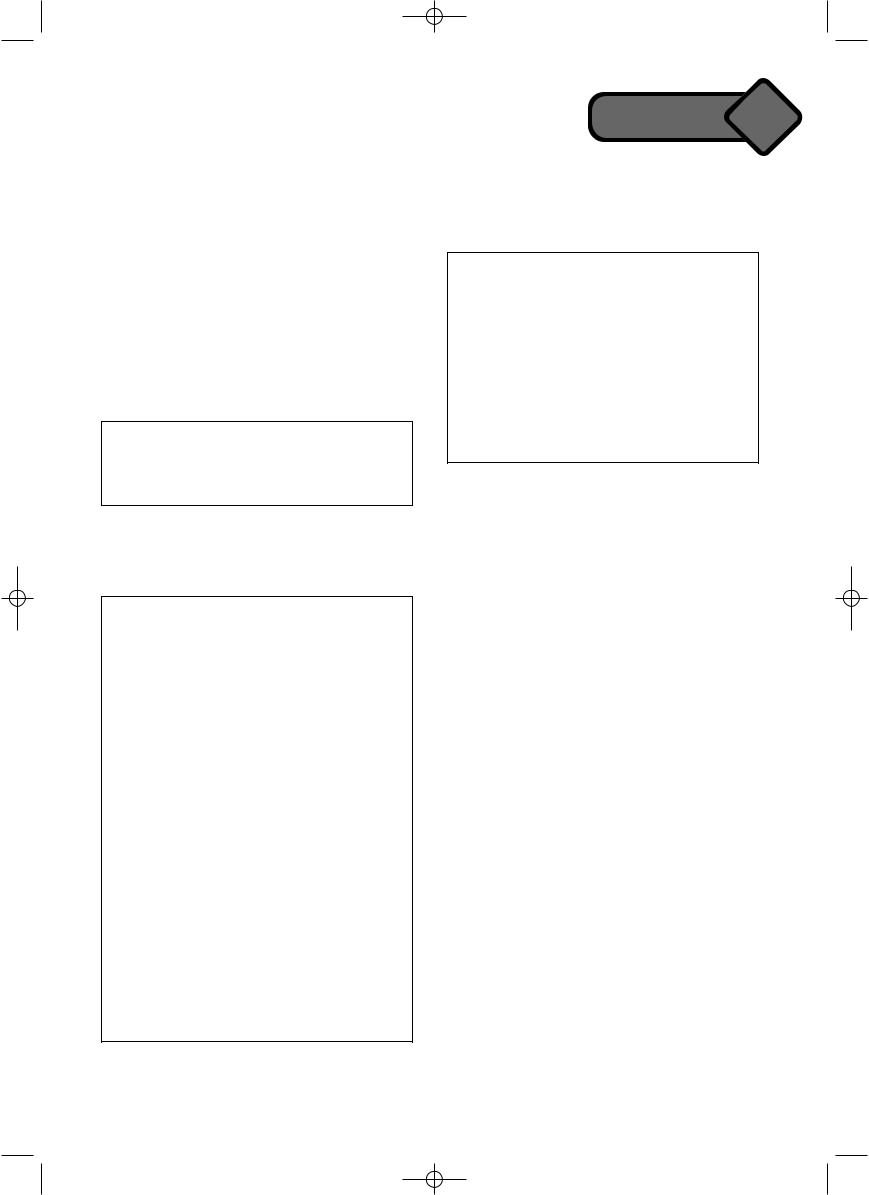
Spotlight 8 Mod 2 Ts 09-09-09 17:06 Page 29
Food & Shopping
Before you start …
ñWork through the questions with the class, asking follow up questions to encourage Ss to expand on their answers as much as possible. e.g. What do you do and say when you meet people? How do you solve conflicts with your friends and family?
ñMake sure Ss understand this section and use the prompts to recycle vocabulary seen in Module 1.
Look at Module 2
ñRefer Ss to the title of module, Food and Shopping, and invite them to suggest what they think it means and what they expect to learn from the module.
Suggested Answer Key
The title means things that we eat and buy. I think we will learn about different types of food, ways of shopping and places to shop.
ñAsk Ss to look through the module and find the page numbers for each of the pictures. Ask questions to stimulate a discussion about them.
Suggested Answer Key
Focus Ss’ attention on pic 1 (p. 27).
T: What page is the picture on?
S1: It’s on page 27. It’s a ball of rice. T: What is it in?
S2: Some kind of dish or package. T: Where would you find this?
S3: Probably in a restaurant or lunch box. T: Do you eat rice? Is this from our country?
S4: I never eat rice. I think it’s from a country in Asia.
Pic 2 (p. 30)
What is this a picture of? What do the words mean? What do they celebrate? Why would you celebrate this? Are you careful about what you buy?
Pic 3 (p. 32)
What is in the picture? Do you eat this food? How is it prepared? Do you know how to cook?
Pic 4 (p. 34)
What’s happening in this picture? What kinds of things are being sold? Who shops at this place? Where do you shop? Have you ever shopped at a place like this?
Module 2
Find the page number(s) for
Allow Ss time to browse through the module and find the items. Ask them to explain what each item is and elicit simple information about each of them.
Suggested Answer Key
a flea market advertisement (p. 29)
What does the advertisement say? What information does it give? Where would you find such an advertisement? Would you go to the flea market? Why?
logos (p. 37)
What are logos? What do you usually find on them? Where do you find them? What kinds of groups have logos? Why do groups have them? Do you know a logo?
Go through the rest of the sections with your Ss and point out that by the end of the module they will know how to perform the tasks listed.
Explain that the module has:
―a Literature and Speaking section
―a Culture Corner
―a Going Green section
―an English in Use section
Ask Ss to look at the relevant pages and elicit what each section is about.
Listen, read and talk about …/Learn how to …/ Practise …/Write/Make …
As described in the relevant section in Module 1.
29
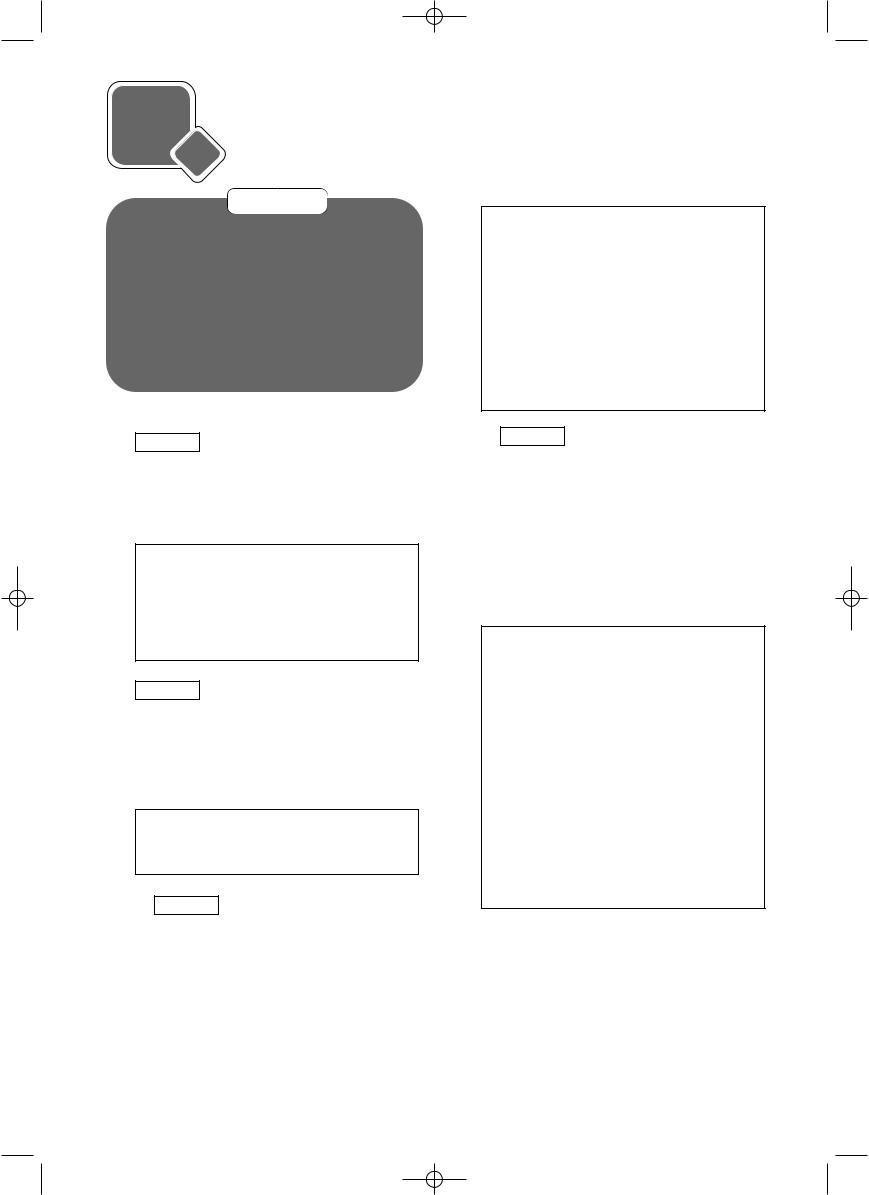
Spotlight 8 Mod 2 Ts 09-09-09 17:06 Page 30
2 a Reading & Vocabulary
Objectives
Vocabulary: food; ways of cooking; collocations (food)
Reading: predicting text content; reading for specific information
Speaking: discussing a text; role playing (ways of cooking)
Listening: listening for specific information Writing: completing sentences; an email about a traditional dish in your country
Reading
Suggested Answer Key
ñDo students make their own obentos? No, the children’s mothers make them.
ñWhat foods are obentos made with?
They are made with rice, meat or fish, vegetables and fruit.
ñWhy do they make attractive shapes with their food?
Because they should be pleasing to the eye and/or they show the mothers’ love for their children.
1Focus Introducing the topic
ñElicit discussion on what Ss eat at school and where it comes from. Refer Ss to example in rubric.
ñCheck for understanding
Suggested Answer Key
I usually eat an apple or banana at school at break time, and then I have a cheese or ham sandwich for lunch with some salad. I take it all from home ― my mum gives it to me in the morning before I leave.
2Focus Predicting text content
ñAsk Ss to look at the pictures and title. Listen to music.
ñInvite them to predict what an “obento” is and where it is from.
ñWrite Ss answers on the board.
Suggested Answer Key
I think that an obento is a school meal. It is from Japan.
3 a Focus Reading for specific information/ listening for specific information
bFocus Reading for specific information/
understanding new vocabulary
ñHave Ss read text again and complete task individually.
ñCheck answers in class
ñRefer Ss to the words in bold. Ss can use Word List to find meanings.
ñHave Ss find meanings in own L1. Allow time for Ss to write down new vocabulary in notebooks.
Answer Key
1 … a boxed meal.
2 … the 5th century.
3 … in theatres, airports or train stations.
4 … rice, meat or fish, vegetables and fruit.
5 … appealing.
6… small and sometimes include new foods for the children to try.
basically: mostly/more or less date back: started/go back in time
nourishing: good for your health, giving you the food you need
take pride in: take pleasure to do something appealing: pleasing and attractive
fussy eater: eat only familiar/ known foods
ñ Elicit questions from Ss about obentos and |
4 |
Focus |
Discussing the text |
|
write them on the board. |
ñ In pairs, have Ss discuss the text and what |
|||
ñ Have Ss read and listen to the text. Ask them |
||||
|
three things they found interesting. |
|||
to find answers to the questions on the |
|
|||
ñ Have pairs answer if they think “obentos” are |
||||
board. |
||||
|
healthy and give reasons why. |
|||
|
|
|||
|
ñ Monitor activity and assist as necessary. |
|||
30
